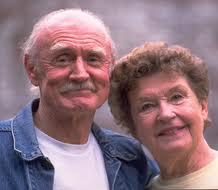
From Elder Care Channel
This blog has brought many new people into my life, most of whom are caregivers looking for assistance with the most difficult job they will ever do. However, it has also brought many people who call themselves professionals in the aging field. Most are wonderful individuals who are happy to have another resource to use. However, I have found recently that the profession is fraught with those who have a ridiculously long list of nonsensical alphabet letters following their last name and seem to creep other’s blogs and scream “look at me” “LOOK AT ME” while attempting to point out weak points and publicly embarrass said blogger. They get caught up in their own experience, blowing its importance way out of proportion and attempting to minimize the experience and wisdom of others.
All this tilting at windmills like Don Quixote makes me wonder why they got into the profession in the first place. Was it to help those aged 65 and older? Was it to assist a caregiver be the best they can be while providing care for another? Or, was it to shore up sagging egos and huge insecurities? You must stay away from these folks as they are NOT here to help you. They are here to help themselves.
You, as a caregiver, should be aware of these folks. Listed below are a few ways to tell if they are serving the public or serving themselves:
1. Do they begin every email, post, conversation or reply with a rundown of their “credentials”? Often, when a person attempts to dazzle you with their “expertise” they are masking a disingenuous motive. These individuals also seem to have an insatiable need to be right. They are going to tell you the “right” thing to do – that will help them, make them feel like an expert, or put money in their own pocket. They should really be offering suggestions so you can decide what is right for you and your loved one.
2. Do they jab you with little criticisms of inconsequential things you do or say and then follow up with, “I don’t mean to be disrespectful” or “I hope I haven’t offended you” – whatever phrase they use the answer is: Yes, that is exactly what they meant!
3. When you have asked them a question about your situation, do they often turn the conversation around to them and their experience? When a “professional” does that, they want you to do what THEY did in the same situation, not what is right for you.
4. Do they speak in extremes using words like Always, Everything, and Never? Individuals who speak in this manner are not going to help you; they want to control you.
5. If you don’t take their suggestion, do they become silent and sullen? Get angry? Or, shut you out?
Here’s what I know for sure: An education (and I have a stellar one) does not, in any way, make someone an expert. Neither do initials behind your name or owning any kind of business. It is the combination of education and firsthand experience that makes for a subject matter expert. Announcing your so-called credentials does nothing but call attention to your lack of decorum and professionalism.
Food Bloggers have a Code of Ethics. Those who blog about seniors, Caregiving, and family issues should have one too. Without one that those who are really professionals choose to follow, it is the Wild West in Blogland.
Let me introduce you to Kathy Greenlee the new head of the Administration of Community Living. You have to force her to tell you what her “credentials” are – she is an attorney – and you can see, in the following interview, her concern for caregivers and those they care for. THIS is the kind of confident and knowledgeable person you want helping you in making decisions for you and your loved one. It may take you a few tries to find the right one, but keep trying – it’s worth it!
